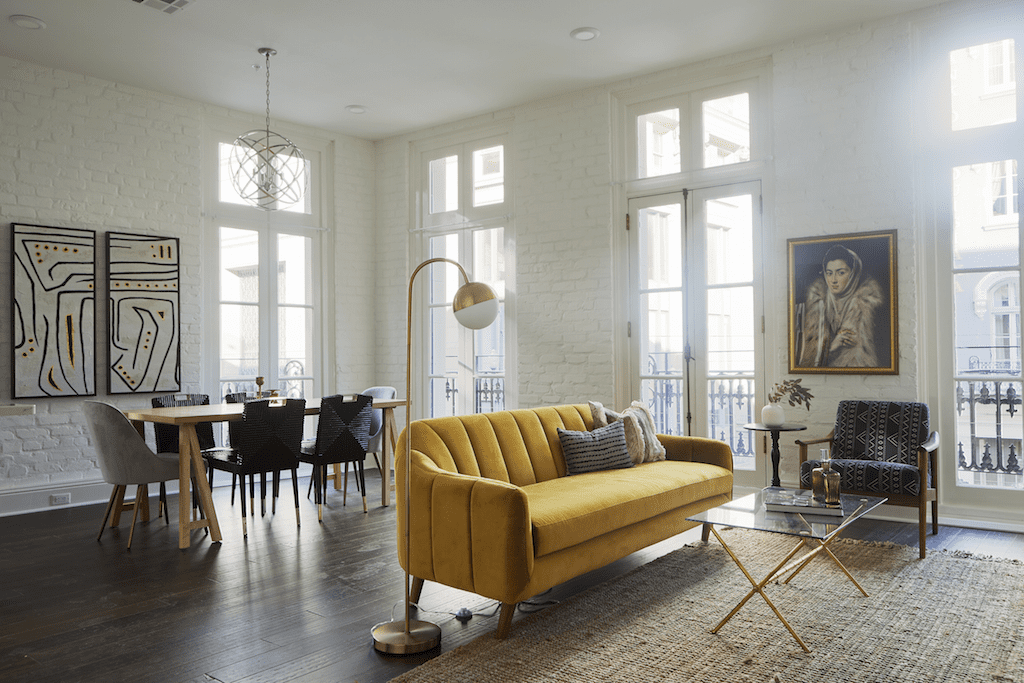Skift Take
Sonder's hotel-style serviced apartments operate in that sweet spot between Airbnb homeshares and full-on hotels. There are, of course, plenty of rivals doing a similar thing, but this funding round will enable Sonder to expand its business and give it a competitive edge.
Boutique hotel-style accommodations business Sonder has raised $225 million as part of its latest funding round.
The total includes $210 million in Series D funding led by Valor Equity, Westcap, and Nicholas Pritzker, through Tao Capital Partners. An additional $15 million will come from developers who are partnering with Sonder on new deals in cities across the world.
“What impressed us was Sonder’s outstanding leadership team and its marriage of technology and design, which we see as the future of hospitality,” said Pritzker, who was formerly chairman of the board and CEO of Hyatt Development Corporation.
This latest round will bring the total raised to $360 million. Sonder plans to use the funds to open a second headquarters in Canada and hire several hundred engineers, designers, and finance and operations experts through 2020.
Sonder, which has 8,500 spaces in 26 cities around the world, is expected to generate $400 million in revenue during 2019 — four times as much as in 2018.
Sonder’s business model is a serviced apartment licensed to run as a hotel. The company leases properties, then designs, furnishes, and decorates them. Its key distinction is that it uses its own technology to operate them as efficiently as possible. Sonder might take out, say, a five-year lease on a property, but the amount it makes on a unit is more than it has to pay out. Around 60 percent of the time, Sonder controls an entire building and works mostly with developers.
“The basic economic equation is that we have to put in money in order to set up the space to make it ready, which is about $10,000 for us. So we spend $10,000, all-in, to set up the space. After that we have to pay rent every month on it, but we happen to generate far more revenue than we pay rent,” CEO Francis Davidson, 26, told Skift.
“We’ve created an investments analysis team that attempts to forecast, as accurately as possible, how much revenue we’re going to generate so that we know that we can afford the lease payments and the overall cost to operate that space.”
Sonder’s Competitors
Sonder’s approach combines the flexibility of an Airbnb homeshare with the consistency of a hotel.
“One thing that is really critical is that our model allows us to have such a degree of control over the quality of the experience that we can guarantee, basically, consistency of service,” Davidson said.
“We can make sure the beds are always comfortable. That the properties always come with soaps and shampoos that are high quality. Like just every single detail can be thought through because we control them.”
There are multiple other companies operating under a similar model, but Sonder claims to be bigger than all the others.
“We’ve raised more capital than all the others combined, and we’re growing faster. Just in the last three months… we’ve signed 3,000 units.”
Others in the same sphere include Lyric, which recently raised $160 million, with some of that money coming from Airbnb, as well as Stay Alfred and The Guild.
Davidson has been critical of the hotel industry in the past and believes, with a few exceptions, hotels are failing to serve the needs of the modern traveler.
“Just the fact that everyone carries super computers in their pockets has transformed so many industries, but not the hospitality industry. We think that customers are paying the price, and that owners of real estate are also paying the price. So it’s really a missed opportunity. There are few industries that have just stayed so stale in the last 20, 30 years,” he said.
Two Big Challenges
With the economy across Europe and North America still holding up, Sonder is able to expand at a pretty rapid rate and bring in enough money to cover rents, but what if there’s another financial crisis?
Davidson said the company has built in some protection in the leases it has signed, meaning that amount it has to pay can change with market conditions.
“We’ve been very judicious when it comes to analyzing, ‘Hey what would happen to our business if any one of the last…recessions of the last 100 years were to occur right away?’ So we constantly kind of plan our financials and our lease contracts in accordance to, essentially, the capacity to withstand economic shock,” Davidson said.
Another challenge for those operating in the alternative accommodations market is local city regulations, something Airbnb has come up against in multiple locations.
“In the vast majority of cities, we just essentially are following the same guidelines as the hotels are, and we’re licensed hotels,” Davidson said.
“It doesn’t look like one, doesn’t feel like one, but it meets the criteria from a zoning, building code, fire and safety, insurance, taxation requirements, all those things. All of those boxes are checked. So we actually study very carefully each city’s regulations.”
The Daily Newsletter
Our daily coverage of the global travel industry. Written by editors and analysts from across Skift’s brands.
Have a confidential tip for Skift? Get in touch
Tags: airbnb, hotels, rentals, sonder, venture capital
Photo credit: A Sonder unit. The company is getting more funding. Sonder
